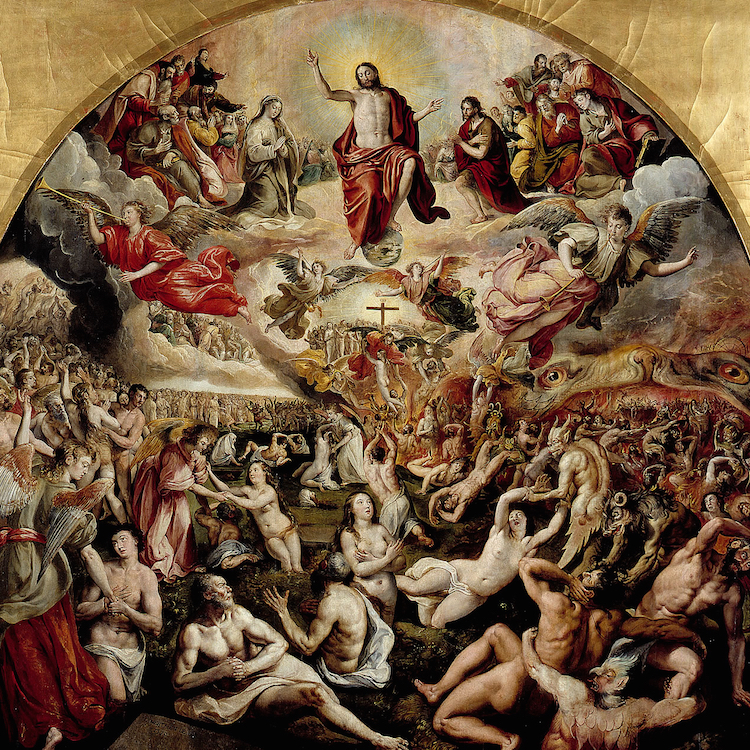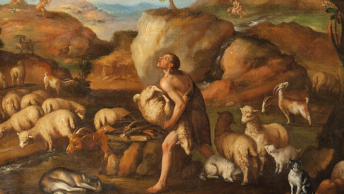In the Gospel of Luke (21:25-28, 34-36) Jesus says, “Beware that your hearts do not become drowsy from carousing and drunkenness and the anxieties of daily life.”
This is the season of the year in which we prepare ourselves to celebrate Christ’s birth. But the Gospel reading for this first Sunday of Advent reminds us that Christ will come again one day. Jesus teaches us that we should not become drowsy, or weighed down, or dulled, or burdened by the way we live our lives or by the choices that we make in life.
In speaking about the end times and of His return in glory, Jesus warns us to be prepared by remaining constantly vigilant. And He tells us that the anxieties of daily life have the same effect as carousing and drunkenness in dulling our senses and causing us to be caught off guard. But why does Jesus highlight those three things: carousing, drunkenness and anxiety? Webster’s dictionary defines carousing as, “To drink deeply and frequently.” The dictionary of legal terms defines drunkenness as, “The consequence of drinking intoxicating liquids to such an extent as to significantly reduce a person’s capacity for rational action and conduct.” The word anxiety, however, at first glance, just doesn’t seem to fit.
Anxiety is a normal human emotion. Webster’s dictionary defines the term anxiety as, “A state of being uneasy, apprehensive, concerned or worried about what may happen; a concern about a possible future event.” Anxiety is very similar to fear, and these two emotions, fear and anxiety, are not only normal, they are necessary and important for our survival. It is the way God created each and every one of us. These two emotions, fear and anxiety, serve to protect us! “When it comes to human survival and achievement, anxiety and fear actually motivate us to take necessary action.” (Matthew D. Jacofsky, Psy.D., Melanie T. Santos, Psy.D., Sony Khemlani-Patel, Ph.D., and Fugen Neziroglu, Ph.D. of the Bio Behavioral Institute, Aug 9, 2013) Clearly, fear and anxiety may at times be unpleasant emotions, but they are emotions that are common to all of us and are an essential part of life.
But we have a choice to make in how we live our lives. St. Paul tells us in his Second Letter to the Corinthians (5:7) that we are to “live by faith, not by sight.” Anxiety may be a natural human emotion, but we do have a free will, and as such we can either live by faith, trusting in God, or we can allow our anxieties to control us, to consume and control our rational behavior.
In order to more fully understand Jesus’ message, we must understand that the word “anxiety” is a powerful word with multiple definitions, and we need to understand these definitions in order to more fully appreciate Jesus’ teaching.
We know that anxiety is a normal human emotion. But we also know that many of us suffer with severe anxiety. These severe anxieties can, “cause such distress to an individual as to interfere with a person’s ability to lead a normal life. These severe anxieties include such things as having feelings of terror that strike suddenly and repeatedly with no warning; or having an overwhelming worry and self-consciousness about everyday social situations, often centering on a fear of being judged by others, or a fear of behaving in a way that might cause embarrassment or lead to ridicule; or having an intense fear of a specific object or situation that is usually inappropriate to the situation, and may cause one to avoid common, everyday situations.” (American Psychological Association, National Institutes of Mental Health, Reviewed by Joseph Goldberg, MD on February 08, 2014) This type of emotion, severe anxiety, has many possible causes; and it can even be inherited. Those of us who suffer in this way need to know that this is not what God intended, and this condition can be prevented and treated.
In advising us on how we should live our lives, Jesus cautions us to beware of the choices that we make in life. In using the phrase, “the anxieties of daily life,” Jesus is obviously referring to our natural human emotion that was given to us by our Creator for our protection. We need to recognize that in our human weaknesses, we do have the capacity to distort a God-given gift.
As we prepare ourselves to celebrate the upcoming Christmas season, remember, Jesus came to earth to reveal the true identity and personality of our God. He came to earth to show us that our God is, “Incredibly wonderful. He is goodness and power and knowledge and love. He is more loving than anyone can begin to imagine or describe. Jesus does indeed love each and every one of us.” (My Descent into Death by Howard Storm) And Jesus promised us that, one day, he would come again.
Yes, we have the capacity to dull our senses with carousing, drunkenness and anxieties, but Jesus is advising us to remain vigilant; for we know that Christ will come again, either at the Parousia or for each of us individually when our time on earth is completed. “Parousia is an ancient Greek word meaning presence, arrival, or official visit.” (James D. G. Dunn, The Theology of Paul the Apostle, 2006, p. 299) This term is used seventeen times in the original Greek New Testament text to refer to the Second Coming of Christ.)
As we prepare ourselves to celebrate the anniversary of Christ’s birth, let us keep in mind the fact that He will one day return in Glory. And let us always remember the incredible love that our Heavenly Father has for each and every one of us, His children, and may we forever mirror the personality of our Heavenly Father by loving one another.








